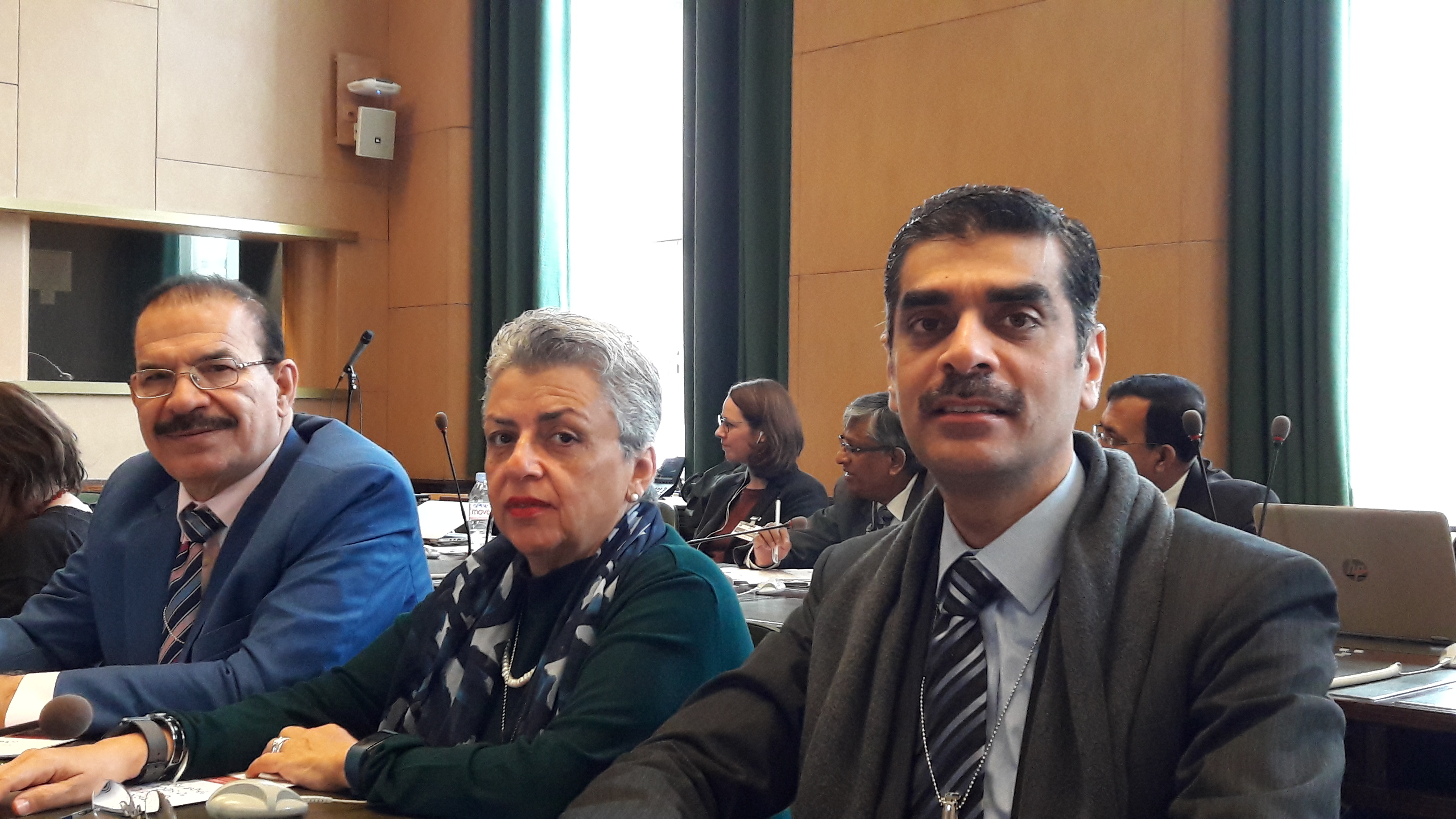NIHR Participates in a Symposium on the Role of National Human Rights Institutions in Enhancement and Protection of Children Rights in Geneva

The National Institution for Human Rights (NIHR)’s delegation, led by NIHR Vice chairperson Mr. Abdullah Al-Derazi, Head of NIHR Committee on Complaints, Monitoring and Follow-up Ms. Maria Khouri and NIHR Acting-Secretary General Mr. Yasser Shaheen, participated on a symposium on the Role of National Human Rights Institutions in Enhancement and Protection of Children Rights, which has been organized by the Global Alliance for National Human Rights Institutions (GANHRI). The symposium was opened by Special Envoy of the GANHRI Mr. Alan Miller who emphasized that the child’s right will always remain at the core of national human rights institutions’ work in order to build a better world and future and noted the importance of connecting this work to the Sustainable Development Goals, the work of the Committee on Child Rights and the universal periodic review. Director of UNICEF Geneva Office Mrs. Marilena Viviani discussed the UNICEF’s role to provide food, medical treatment and education, indicating that there are 17,000 children under the age of 5 who daily die for avoidable reasons and that there are 5 million children at school age who are unable to read and write and are out of school for various reasons. Here comes the role of national human rights institutions to implement the Sustainable Development Goal 16, follow-up the implementation by States of the international standards for the protection of child rights and facilitate access to the means of national remedy.
Member of the Committee on the Rights of the Child Mr. Jorge Llorens noted that the national human rights institutions are deemed an essential element in the protection and enhancement of child rights and that it is important for the States to realize this role and find out mechanisms for complaints for the children. Ms. Gina Berg of the Office of the High Commissioner for Human Rights (OHCHR) emphasized the importance of creating a clean environment and schools that are free of violence. Here emerges the role of the national human rights institutions through building on the existing work, supporting governments in reporting on treaty bodies, implementing Sustainable Development Goals and cooperating with the Office of the High Commissioner for Human Rights (OHCHR).
The symposium contained two sessions. The first session focused on the Rights of the Child as a Standard for Achieving Sustainable Development Goals 2030 and was managed by the Human Rights Specialist at the United Nations Children’s Fund (UNICEF) Ms. Mitra Motlagh, during which examples of the experiences of a number of countries were presented through national human rights institutions in Armenia, Mexico, Malaysia and Uganda. In an intervention by NIHR Vice President Mr. Abdullah Al-Derazi, he spoke about the role of the NIHR in calling for banning the participation of children in political rallies and gatherings as well as the advisory opinions issued by the NIHR on the importance of harmonizing the national legislations in the Kingdom of Bahrain with the Convention on the Rights of the Child, especially with regard to the age of the child and the several training programs provided by the NIHR for children during the summer vacation in cooperation with the Police Royal Academy. He also pointed out that the NIHR has recently inaugurated a coloring book on child rights that contains drawings related to the rights stipulated in the Convention on the Rights of the Child and the related national legislations.


